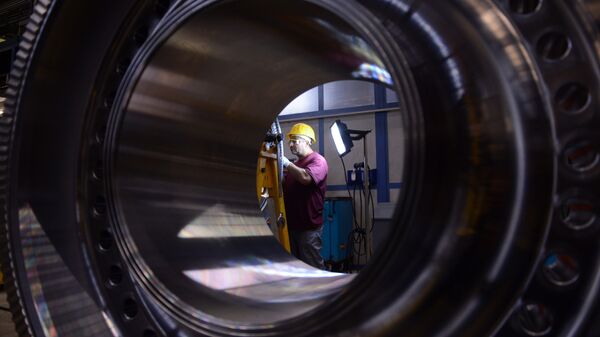"Of course we do not support this. We understand that Siemens has now suspended all projects with energy companies in Russia with state participation, this is a forced move," Harms told reporters.
He underscored the German conglomerate's 165-year presence in the Russian market and noted that "we are very satisfied and the Russian government is satisfied with Siemens' actions."
"The company is doing fantastic business there and it would be very pitiful if this prevented it," Harms said.
"If there are any doubts, the firms will simply not make deals," Michael Harms told reporters.
Harms predicted that foreign companies would be "on alert" to the unfolding developments with the German conglomerate.
"And this is one of those negative effects that have already occurred. I think that all projects that will only be close to a potential violation of sanctions will be examined even more carefully," he said.
The committee expects that Moscow will demonstrate full respect for the conditions of the agreements put forth by the Siemens corporation, Michael Harms said.
"Siemens' behavior in this situation is absolutely correct and transparent. We expect from the Russian government that the provisions of the agreement will be fully implemented. The violation of the agreement will have serious consequences," Harms told reporters, noting that the arguments of the Russian side about the origin of the turbines were not clear.
In early July, Siemens created a task force team to investigate reports about the alleged transfer of turbines to the Crimean peninsula that were produced by Siemens Gas Turbines Technologies, a joint venture with the Russian Power Machines company. On Friday, the company said that all four of its turbines, intended for a project in Taman, were illegally delivered to Crimea.
Siemens decided to annul a license agreement for power plant equipment supply and to suspend those supplies from Russian state firms in order to devise new control measures.




